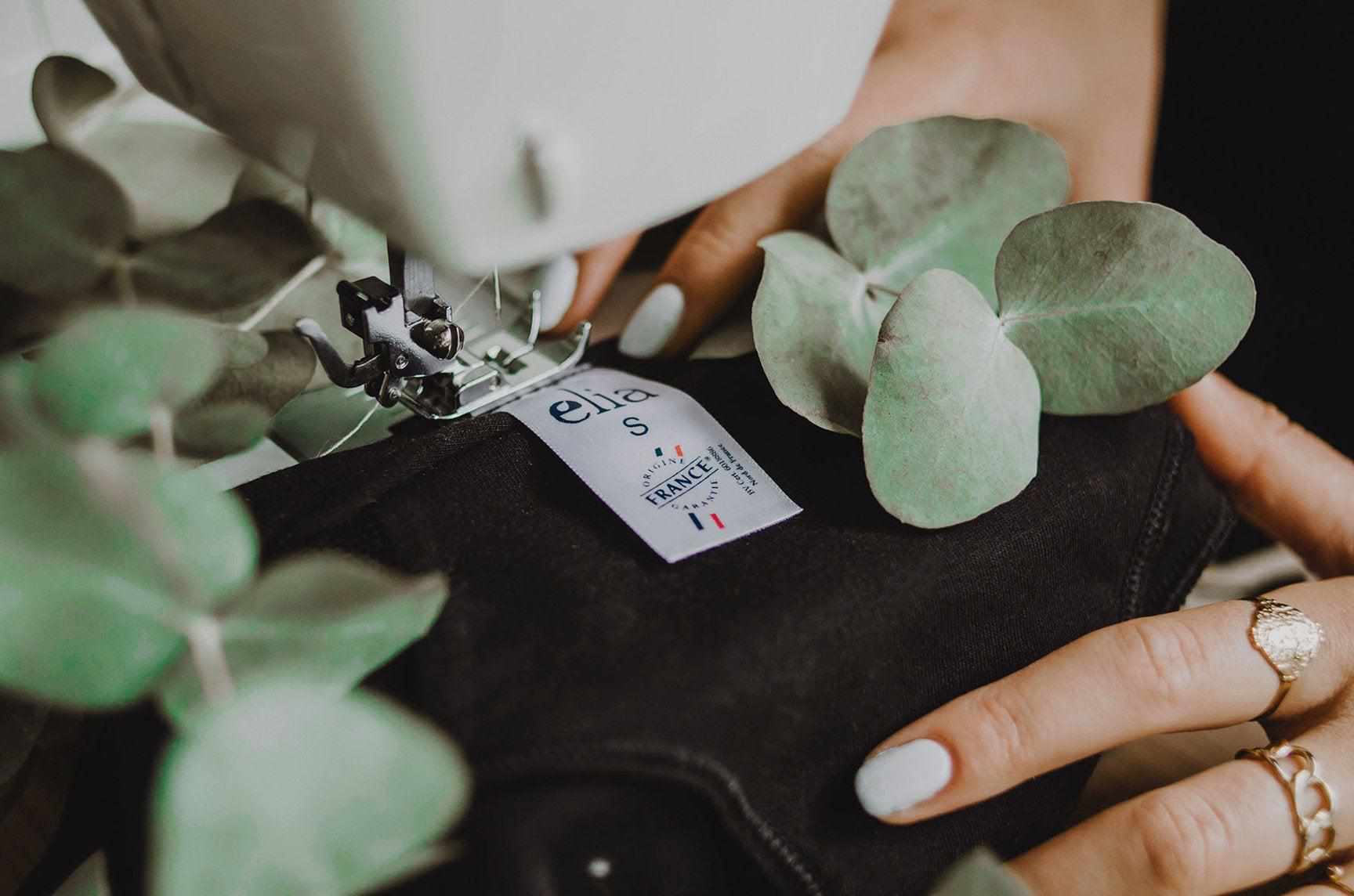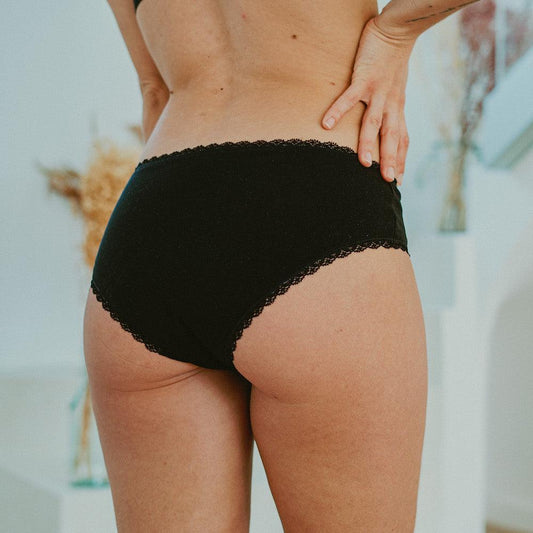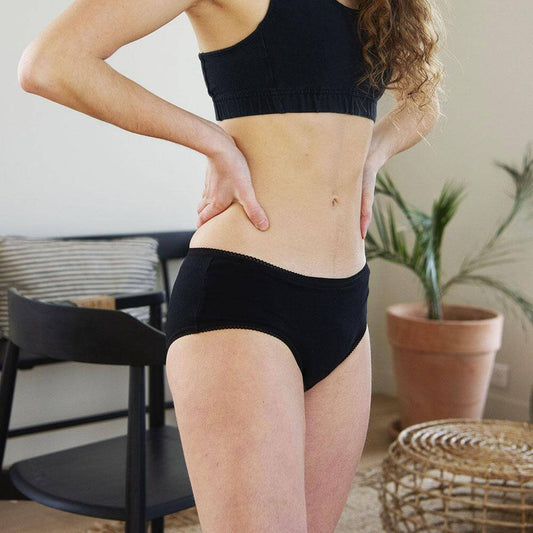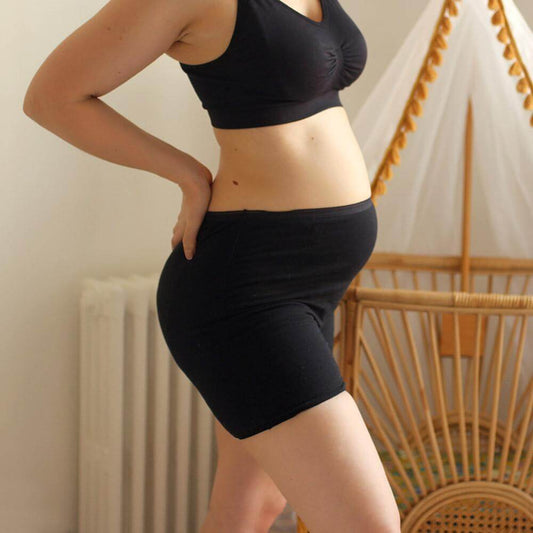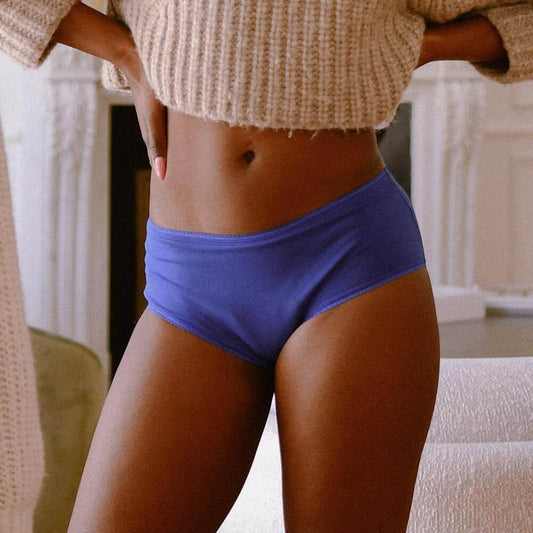Nous avons tous un devoir envers la nature.
C'est pour cela qu'Elia, au delà de vouloir vous proposer des produits naturels et respectueux de votre corps, souhaite également faire du bien à la planète en s'engageant au quotidien.
Des culottes menstruelles éco-responsables qui portent nos engagements

MOINS GOURMANDE EN EAU
La culture du coton bio
La culture conventionnelle du coton est malheureusement très néfaste pour l'environnement : engrais chimiques, pesticides, consommation en eau affolante, blanchiment de la fibre avec des substances nocives... Alors même qu'il représente plus de la moitié de la consommation textile dans le monde.
Le coton biologique est quant à lui cultivé avec deux fois moins d'eau et des composts naturels. Le traitement de la récolte et les teintures sont réalisées avec des produits plus neutres pour le corps, pour limiter les risques d'allergie.
L'appellation biologique ne concerne toutefois que l'étape de la culture du coton. Pour pousser notre démarche encore plus loin, nous nous sommes également entourées de certifications concernant la production de nos produits finis et ainsi assurer l'innocuité de notre lingerie sur toute la ligne.

FIBRES DE BOIS
Préservation des ressources
Notre matière absorbante en fibres de bois, que nous utilisons dans notre technologie de lingerie menstruelle est quand à elle fabriquée en Autriche, dont la production est également très respectueuse de l’environnement.
L'utilisation du bambou, victime de déforestation massive, ne reflétait pas nos valeurs : chez Elia, nous avons choisi de travailler la fibre d'eucalyptus.
Le tissu issu de ces fibres de bois est, tout comme notre coton biologique, entièrement biodégradable.
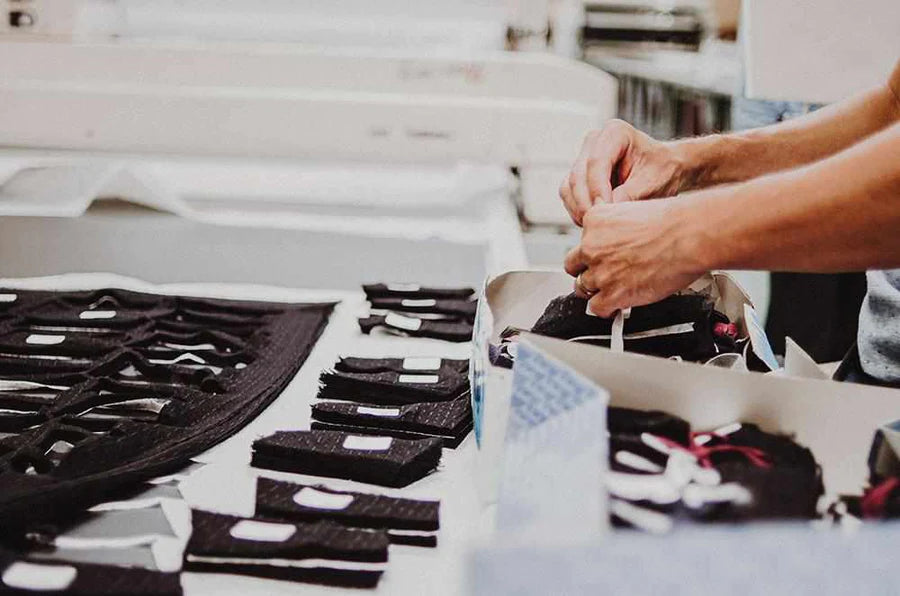
BÉNÉFICE SOCIAL ET ENVIRONNEMENTAL
Des ateliers tout intégrés
Nos ateliers réceptionnent toutes ces matières premières et les transforment sur place pour obtenir notre produit fini.
Ils ont à coeur de limiter les transports et leur empreinte carbone : tricotage, découpe, broderie, assemblage... Ici, tout est fait en France, grâce à la centaine d'emplois générée par cette activité
Les déchets et chutes de tissus partent même en recyclage, pour un circuit avec le moins de pertes possibles.
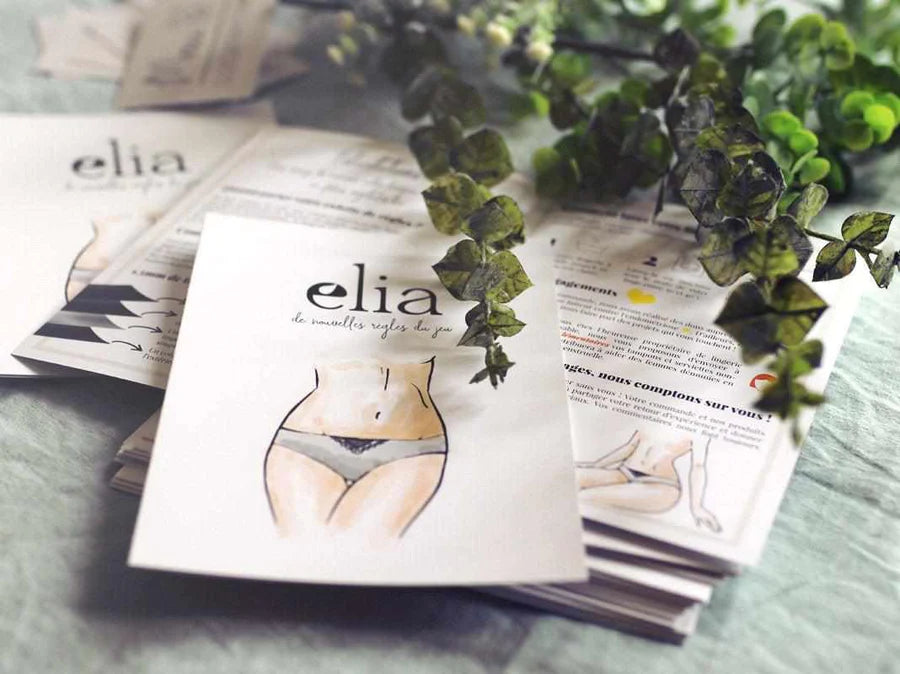
LE SAVIEZ-VOUS ?
Nos impressions sont climatiquement neutres
Dès que possible, nous essayons de limiter les émissions de CO2 liées à nos impressions.
Qu'est ce que ça signifie ? Cela veut dire qu'Elia compense la quantité de gaz à effet de serre émise lors de l'impression de nos supports de communication. C'est notamment le cas de nos livrets d'accompagnement par exemple, qui sont joints à votre commande.
Pour cela, nous soutenons grâce à ClimatePartner, le projet de reboisement de la forêt amazonienne, dans la région de Parà, au Brésil. Les forêts tropicales stockent beaucoup de CO2 et sont les véritables poumons de la Terre. Elia est fière d'y contribuer, grâce à vous.
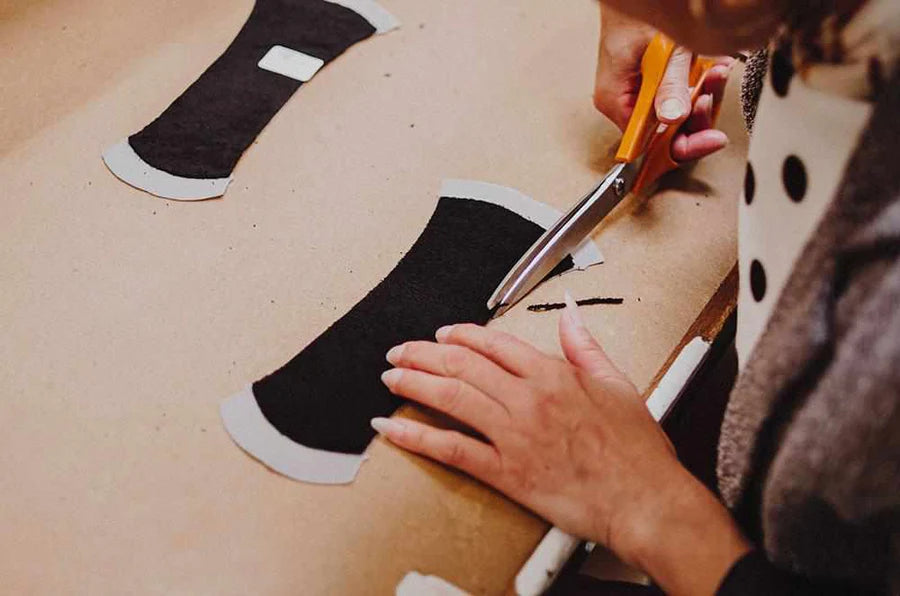
LUTTE AUX SURPLUS DE STOCK
Une production sans gâchis
Elia se veut éco-responsable et durable. Les soldes et la fast-fashion sont souvent le résultat d’une surproduction de produits textiles, au prix d’une empreinte écologique désastreuse et d’un gâchis de matières premières polluantes à la fabrication. Alors chez Elia, on préfère produire exactement ce qu’il faut, avec des matières premières naturelles et d'excellente qualité.
Notre politique de prix est de vous proposer la meilleure qualité au prix le plus juste. Nous avons fait le choix de tout produire en France pour assurer une traçabilité et un confort maximal de nos culottes, sans compromis.
Merci de nous soutenir dans notre démarche !
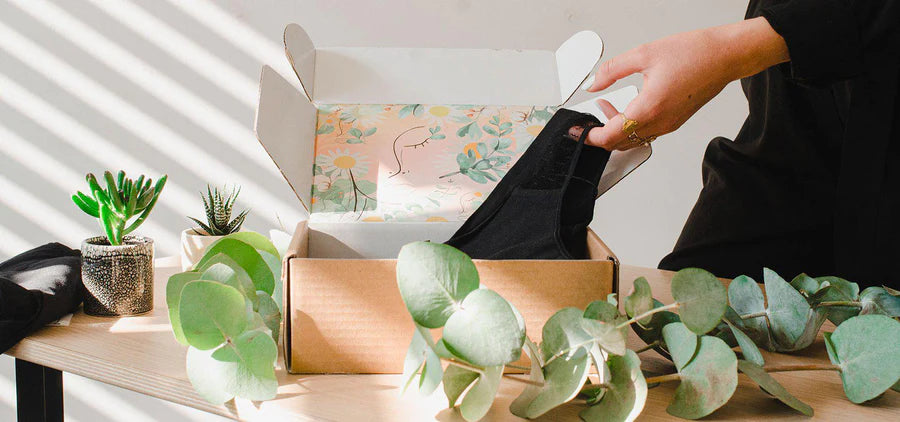
PAS DE PLASTIQUE !
Un emballage recyclable
Nos envois sont sans plastique et nous essayons de limiter au maximum le suremballage : nos produits sont simplement emballés dans du papier de soie réutilisable pour les protéger durant le transport : une enveloppe pour les envois les plus légers, un carton recyclable ou compostable pour les commandes plus volumineuses !
Nous limitons également les factures papier dans votre colis, qui peuvent vous etre envoyées sur demande par email !
Vos questions les plus fréquentes sur l'éco-responsabilité chez Elia
Utiliser des culottes de règles, est-ce économique ?
Absolument ! Si vous utilisez des protections périodiques jetables, c'est autant d'argent et de déchets qui finissent à la poubelle à chaque cycle. Sur le long terme, les culottes de règles sont plus économiques. Mais au-delà de l'économie de coût que vous réalisez avec la lingerie menstruelle, utiliser des culottes de règles c'est surtout un engagement pour la planète (zéro déchet, moins de polluants...) et pour le corps (coton 100% bio, pas de risque de syndrome du choc toxique...).
Faites le test et découvrez combien vous pourriez économiser grâce à notre calculateur d'économies.
La lingerie menstruelle Elia est-elle vegan ?
Chez Elia, nous n'utilisons effectivement aucune matière issue de fibres animales : notre zone absorbante est réalisée en textile de fibres de bois et le tissu de nos culottes est en coton.
Nous essayons de choisir nos tissus dans le respect de l'environnement. Pour en savoir plus sur les différentes matières qui composent notre lingerie et la zone absorbante, découvrez notre technologie plus en détail.
Quelle est la durée de vie d'une culotte menstruelle ?
Si vous en prenez soin, notre lingerie a la même durée de vie qu'une lingerie classique : 5 à 7 ans !
Il s'agit donc d'un produit durable avec une empreinte écologique faible à ajouter d'urgence dans sa garde-robe éco-responsable !

